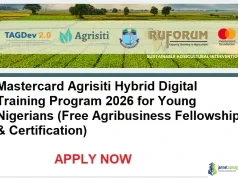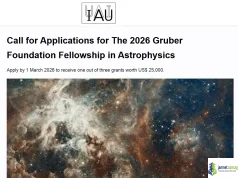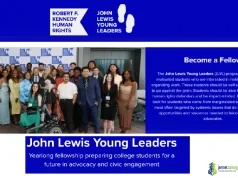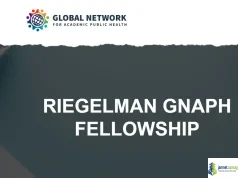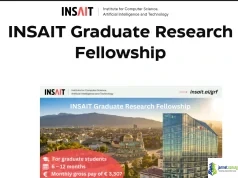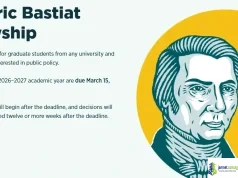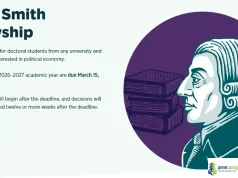The Microsoft Research Fellowship 2026 is a highly competitive global program dedicated to supporting exceptional PhD students working on cutting-edge research across science, engineering, computing, and artificial intelligence. For recipients based in Africa, the fellowship includes a significant financial package: a $17,000 USD stipend and fully-funded travel support to collaborate directly with Microsoft Research labs. This unique opportunity provides a vital gateway for young African scholars to access world-class mentorship, enhance their academic visibility, and drive impactful research in areas like AI/ML, Systems, Health, and Security. The program is open now for PhD students enrolled at an accredited university whose research aligns with Microsoft’s core interests. Early application is strongly recommended.


Microsoft Research Fellowship 2026 Summary Table
| Criteria | Details |
|---|---|
| Host Institution | Microsoft Research |
| Target Audience | Exceptional PhD Students (African Researchers) |
| Program Type | Global Research Fellowship and Collaboration |
| Duration | Full 2026 Fellowship Cycle (Ongoing collaboration) |
| Financial Support | $17,000 USD Stipend (For African Recipients) |
| Key Benefit | Fully-funded travel to Microsoft Research Labs |
| Focus Areas | AI/ML, Systems, HCI, Data Science, Security, Health, Ethical AI |
| Application Window | Open Now |
Microsoft Research Fellowship 2026 Details
The Microsoft Research Fellowship 2026 is a highly competitive global program dedicated to supporting exceptional PhD students working on cutting-edge research across science, engineering, computing, and artificial intelligence.

Join our Telegram Channel for Instant Scholarship Updates
For recipients based in Africa, the fellowship includes a significant financial package: a $17,000 USD stipend and fully-funded travel support to collaborate directly with Microsoft Research labs. This unique opportunity provides a vital gateway for young African scholars to access world-class mentorship, enhance their academic visibility, and drive impactful research in areas like AI/ML, Systems, Health, and Security. The program is open now for PhD students enrolled at an accredited university whose research aligns with Microsoft’s core interests. Early application is strongly recommended.
Microsoft Research Fellowship 2026 Benefits
The fellowship offers a structured pathway to global recognition and professional development, focusing on financial support, collaboration, and high-level mentorship.
Tier 1: Global Funding and Collaboration Gateway
This tier represents the most significant and transformative benefits for African recipients, addressing critical barriers to global research.
- Substantial Stipend: Selected African recipients receive a $17,000 USD stipend to support their academic studies and living expenses throughout the fellowship period.
- Funded Research Collaboration: Fellows receive fully-funded travel support to visit and collaborate with Microsoft Research labs globally, providing unparalleled access to state-of-the-art facilities and projects.
Tier 2: World-Class Mentorship and Publication Support
This tier details the direct access to expertise and resources that elevate the quality and reach of the fellow’s research.
- World-Class Mentorship: Fellows gain access to world-class researchers and mentors at Microsoft, forming invaluable relationships that guide their development and research trajectory.
- Research Partnerships & Publication: The fellowship provides opportunities for direct research partnerships, which can lead to publication support in top-tier academic journals and conferences, significantly boosting academic visibility.
Tier 3: Academic Exposure and Network Expansion
This tier outlines the long-term benefits related to expanding the fellow’s professional sphere and understanding of industry advancements.
- Cutting-Edge Exposure: Fellows gain exposure to cutting-edge advancements in areas like AI, computer science, engineering, and emerging technologies, providing deep insight into the industry’s future.
- Global Network Expansion: Participants expand their network across global research ecosystems, connecting with leading peers and institutions worldwide.
- Impact-Focused Research: The program prioritizes research with strong societal impact, innovation potential, or real-world applicability, positioning the fellow at the forefront of applied technology.
Eligibility Requirements for the Microsoft Research Fellowship 2026
Applicants must meet specific academic criteria related to their current degree and research focus.
- Study Status: Must be PhD students currently enrolled at an accredited university.
- Research Alignment: Research must be aligned with the areas supported by Microsoft Research, including AI, Machine Learning, Systems, HCI, Health, Computing, and Responsible & Ethical AI.
- Academic Performance: Must demonstrate strong academic performance and an impactful research trajectory.
- Commitment: Must be willing and able to participate in collaborations with Microsoft researchers throughout the fellowship period.
- Submission: Must submit all required documentation before the deadline.
How to Apply for the Microsoft Research Fellowship 2026 (Step by Step)
Interested candidates must compile a comprehensive application package and submit it through the official portal.
- Prepare Documentation: Gather and prepare all necessary application materials, ensuring they are polished and reflect the impact and novelty of your research.
- Compile Required Documents: The application must include a Research statement, your CV, Academic transcripts, Letters of recommendation (usually 2-3), and Proof of PhD enrollment.
- Submit via Official Portal: Submit the complete application package through the official portal. The provided link is:
https://unitednationsrecruit.com/2025/11/06/microsoft-research/. - Early Submission: Early submission is strongly recommended due to the competitive nature of the program.
Application Deadline: All applicants will be notified of their status by February 2, 2026
CLICK HERE TO APPLY
For more information Click HERE
Frequently Asked Questions (FAQ)
1. What is the amount of the stipend for African recipients?
The stipend for selected African recipients of the Microsoft Research Fellowship is $17,000 USD.
2. Is the travel to Microsoft Research labs covered financially?
Yes, the fellowship includes fully-funded travel support specifically for collaboration purposes at the Microsoft Research labs.
3. Who is eligible to apply for this fellowship?
The fellowship is open to PhD students currently enrolled at an accredited university whose research aligns with Microsoft Research’s focus areas.
4. What are the key research areas Microsoft is interested in?
Microsoft is primarily interested in research across Artificial Intelligence (AI), Machine Learning, Systems and Networking, Computational Social Science, Data Science, and Security/Privacy.
5. Does having “societal impact” give an advantage in the application?
Yes, research with strong societal impact, innovation potential, or real-world applicability is explicitly stated as having an advantage.
6. What crucial documents are required for the application?
Required documents include a Research statement, CV, Academic transcripts, Letters of recommendation, and Proof of PhD enrollment.
7. What is the expected commitment during the fellowship period?
Fellows are expected to participate in collaborations with Microsoft researchers throughout the 2026 fellowship cycle.
8. Will the program help with academic publications?
Yes, the program offers opportunities for research partnerships and potential publication support to boost the fellow’s academic visibility.
9. What is the importance of “systems thinking” in the research?
While the provided text mentions various fields like Systems and Networking, the focus is on addressing cutting-edge research; a systems-thinking approach to solve complex problems would align well with their goals.
10. Can Master’s students apply for this fellowship?
No, the eligibility criteria explicitly state that applicants must be PhD students enrolled at an accredited university.


